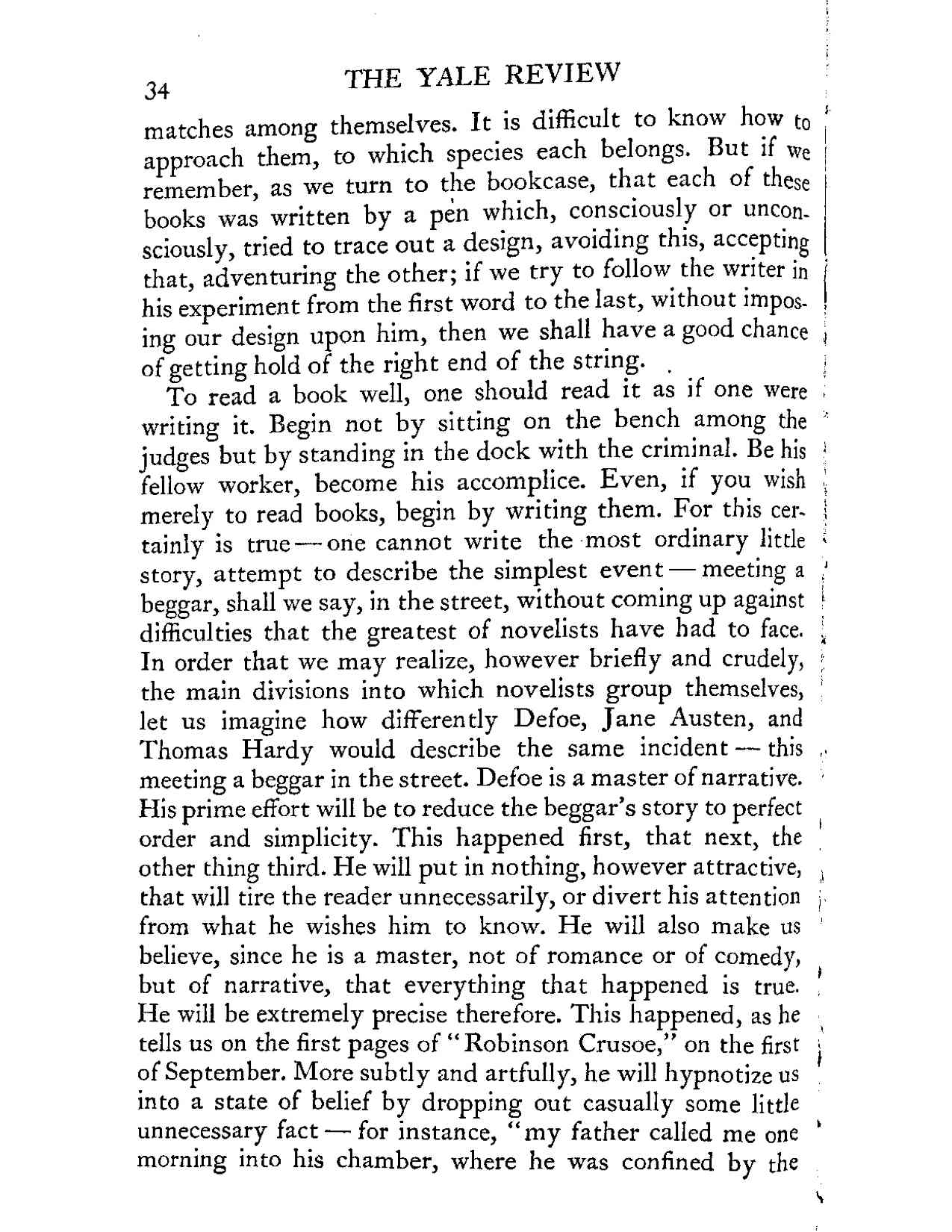
matches among themselves. It is difficult to know how to
approach them, to which species each belongs. But if we
remember, as we turn to the bookcase, that each of these
books was written by a pen which, consciously or uncon-
sciously, tried to trace out a design, avoiding this, accepting
that, adventuring the other; if we try to follow the writer in
his experiment from the first word to the last, without impos-
ing our design upon him, then we shall have a good chance
of getting hold of the right end of the string.
To read a book well, one should read it as if one were
writing it. Begin not by sitting on the bench among the
judges but by standing in the dock with the criminal. Be his
fellow worker, become his accomplice. Even, if you wish
merely to read books, begin by writing them. For this cer-
tainly is true—one cannot write the most ordinary little
story, attempt to describe the simplest event—meeting a
beggar, shall we say, in the street, without coming up against
difficulties that the greatest of novelists have had to face.
In order that we may realize, however briefly and crudely,
the main divisions into which novelists group themselves,
let us imagine how differently Defoe, Jane Austen, and
Thomas Hardy would describe the same incident—this
meeting a beggar in the street. Defoe is a master of narrative.
His prime effort will be to reduce the beggar’s story to perfect
order and simplicity. This happened first, that next, the
other thing third. He will put in nothing, however attractive,
that will tire the reader unnecessarily, or divert his attention
from what he wishes him to know. He will also make us
believe, since he is a master, not of romance or of comedy,
but of narrative, that everything that happened is true.
He will be extremely precise therefore. This happened, as he
tells us on the first pages of “Robinson Crusoe,” on the first
of September. More subtly and artfully, he will hypnotize us
into a state of belief by dropping out casually some little
unnecessary fact—for instance, “my father called me one
morning into his chamber, where he was confined by the






